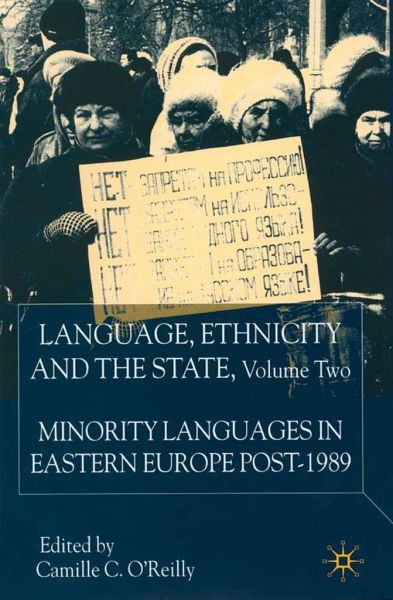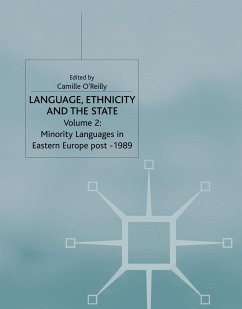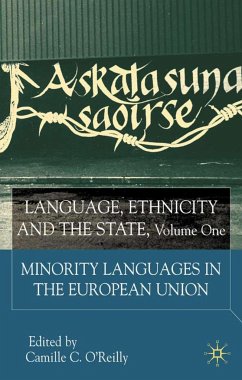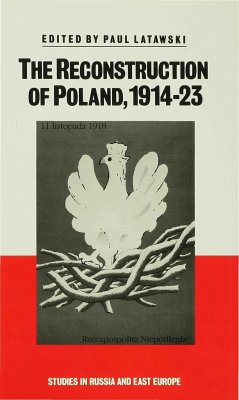
Language, Ethnicity and the State, Volume 2
Minority Languages in Eastern Europe Post-1989
Herausgegeben von O'Reilly, C.
Versandkostenfrei!
Versandfertig in 6-10 Tagen
76,99 €
inkl. MwSt.

PAYBACK Punkte
38 °P sammeln!
The political and social upheavals following 1989 have had a significant impact on the minority languages of Eastern Europe. There have been attempts at enlightened treatment of minority linguistic groups in some of the new states but in others such groups have been openly oppressed. This volume draws on sociologically and ethnographically oriented work from a number of disciplines to allow the reader to compare developments in the different states, and to examine the interplay of language issues, ethnic nationalism, and processes of state formation and restructuring in the various political a...
The political and social upheavals following 1989 have had a significant impact on the minority languages of Eastern Europe. There have been attempts at enlightened treatment of minority linguistic groups in some of the new states but in others such groups have been openly oppressed. This volume draws on sociologically and ethnographically oriented work from a number of disciplines to allow the reader to compare developments in the different states, and to examine the interplay of language issues, ethnic nationalism, and processes of state formation and restructuring in the various political and historical contexts of Central and Eastern Europe. A companion volume (0-333-92925-X) examines the status of minority languages in the European Union.












